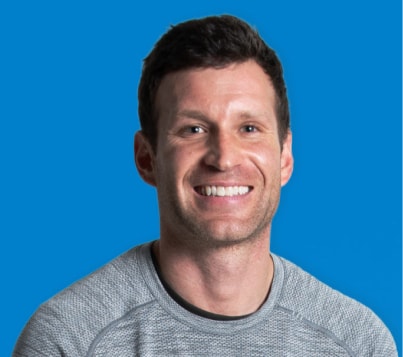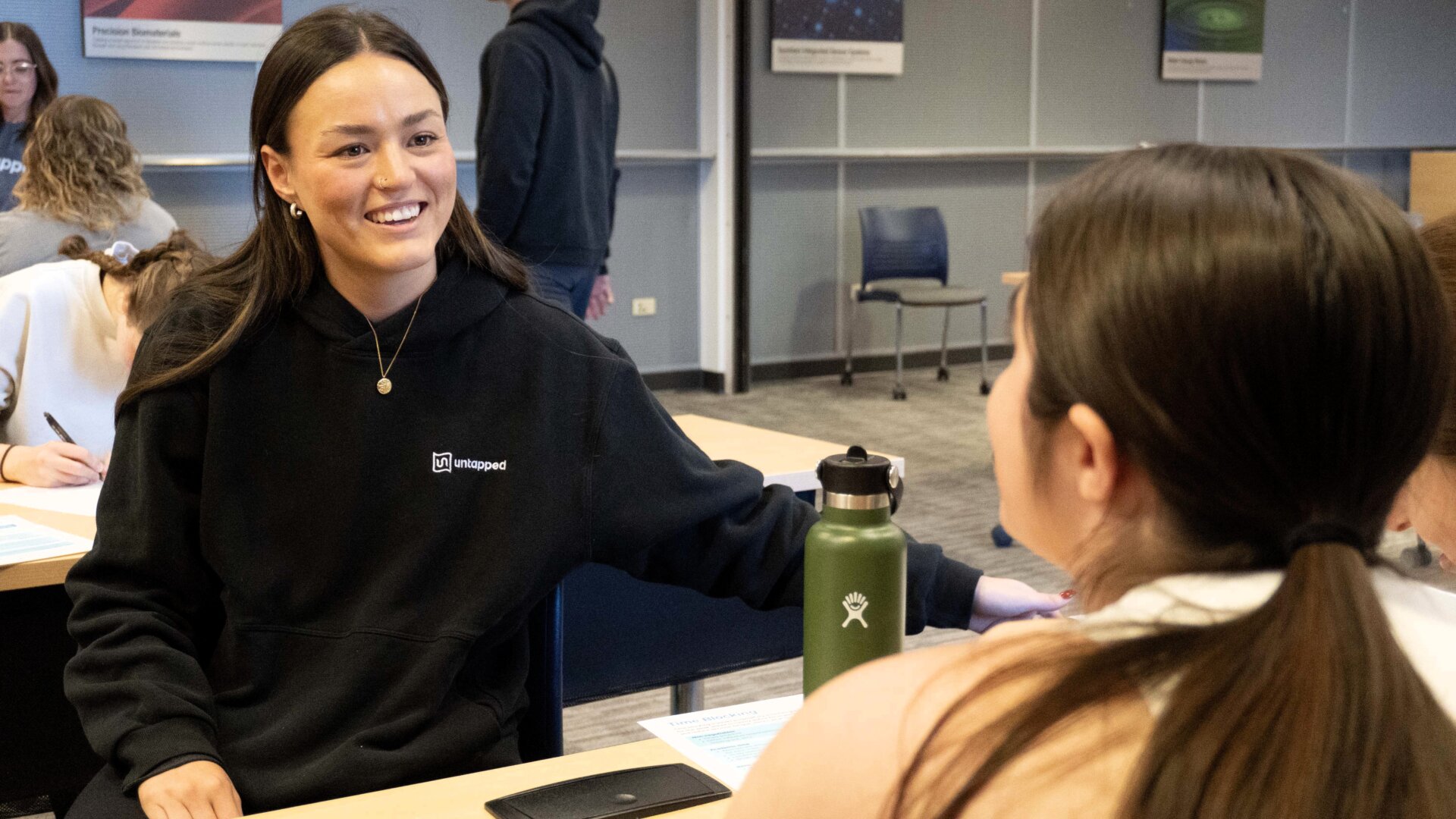A Journey of Resilience, Leadership, and Self-Management
November 20, 2024

Summary: Tara Culibrk, an NCAA National Champion and distinguished member of the Denison University community, exemplifies what it means to balance academics, athletics, and personal growth. Growing up in Serbia, Tara built her success through hard work, strong support, and smart self-management. Her strategies for time management, resilience, and leadership offer helpful lessons for any student or athlete with a busy schedule.
Discovering a Passion for Swimming and a New Goal
Tara’s journey into swimming began at a young age in Belgrade, Serbia. When her parents suggested she try swimming instead of track and field, she immediately fell in love with it. “From day one, I wanted to get better,” she recalls.
By the time she reached middle school, she had set her sights on college swimming in the U.S., inspired by her father’s encouragement and the vision of a college experience like the ones she saw in movies.
To prepare, she attended an international high school where classes were taught in English, easing her transition to American college life. This early preparation reflects Tara’s proactive approach, as she took practical steps to prepare herself for future challenges, a component of executive function.
Leveraging Resources at Denison University
Transitioning to Denison University, Tara found herself in a new country with rigorous academic and athletic demands. Her adjustment was made smoother by the support of her head coach, Greg Parini, who offered both athletic and academic guidance. “Greg would even review my essays and give feedback,” she shared, illustrating the value of having mentors who go above and beyond their traditional roles.
Additionally, Denison’s International Office and the upperclassmen on the swim team provided a robust support system, helping Tara acclimate to college life. For any student, especially international students, using campus resources is crucial. Tara’s experience shows the importance of seeking support early and building a network of mentors who can provide both emotional and academic guidance.
Time Management and Avoiding Overwhelm
From her first year, Tara was taught the importance of time management, receiving guidance from both her coach and Denison’s first-year orientation classes, which focus on helping students balance their schedules. Despite her naturally social personality, Tara learned to prevent overbooking and manage her commitments effectively.
A strategy that became a cornerstone for Tara was frontloading her work at the beginning of the week. “When I’m focused, I try to get as much done as possible,” she explained. By doing school work early in the week, Tara avoided last-minute stress and created a buffer for her busy schedule.
This proactive approach to managing tasks, a skill that’s particularly valuable for students with packed schedules, emphasizes the importance of starting assignments early to reduce pressure and build confidence.
Routines and Positive Affirmations
As a student-athlete, Tara’s days were carefully structured to accommodate early practices, classes, and study time. Mornings began with a 5:30 AM swim practice, followed by breakfast with teammates and a lineup of classes. Recognizing her natural productivity peaks in the morning, Tara scheduled most of her classes during this time, reserving evenings for recovery.
During her senior year, Tara added affirmations and gratitude journaling to her daily routine. Each morning, she would recite affirmations related to swimming, and each evening, she wrote down three things she was grateful for. This practice helped her boost confidence and maintain a positive mindset before races and classes. The habit of daily affirmations is an effective executive function tool, promoting a growth mindset and reinforcing a sense of control over her performance. For any student, adopting simple routines, like gratitude journaling or affirmations, can provide a mental boost and improve resilience under pressure.
The Importance of Rest
While Tara has a strong work ethic, she also understands the value of rest. Fridays and Saturdays often served as her rest days, allowing her to recharge and return to her commitments with renewed focus. “Taking breaks actually made me more focused when it was time to work again,” she noted, a lesson she learned after struggling with guilt for not being constantly productive.
This mindset shift reflects an important aspect of executive function: the balance between productivity and recovery. For students balancing academics and extracurriculars, building in rest days can prevent burnout and improve long-term performance.
Resilience in the Face Setbacks
In 2020, Tara’s freshman year, Denison’s swim team was on the brink of an incredible season when COVID-19 hit, canceling all events just days before nationals. The disruption was difficult, particularly after she had overcome a plateau in her swimming performance.
Despite the setback, Tara demonstrated resilience, using the experience to refocus and find new motivation. By her junior year, her team placed third at nationals, and in 2023, they achieved the ultimate goal by winning the NCAA National Championship in the 800 freestyle relay.
Tara’s journey highlights the importance of adapting to setbacks and finding renewed purpose after disappointment. For students facing similar challenges, embracing resilience and focusing on long-term goals can help them persevere, even when circumstances seem unfavorable.

Leading with Empathy
As Tara progressed in her college career, she took on the role of team captain, a role she describes as “a full-time job.” Weekly meetings with Coach Farini helped her assess the team’s dynamics and address any issues that arose. Leading her team also taught her to find a balance between supporting others and setting boundaries, allowing her teammates to make their own decisions while still offering guidance.
Tara’s leadership approach is grounded in empathy and responsibility. This experience demonstrates that leadership within a team is about building trust and empowering others, a lesson that applies to students in any group or collaborative setting.
Tara’s Advice for New Students: Embrace College Life
For incoming students, Tara emphasizes the importance of getting involved, connecting with others, and building a support system. She encourages students, especially introverts, to step out of their comfort zones, open their doors, and embrace campus life. “Academics are important, but so are friendships and experiences outside of studying,” she shared.
Tara’s advice reflects her understanding that college is not only a place for academic growth but also a time for personal exploration and relationship-building. By finding a balance between studying and social life, students can create a fulfilling college experience.
Key Takeaways from Tara’s Journey
- Seek Support Early: Like Tara, using available resources, whether academic advisors, tutors, or mentors, can help students manage the transition to college life.
- Prioritize Time Management: Frontloading assignments and scheduling tasks in line with personal productivity peaks are effective strategies for staying organized and reducing stress.
- Simple Routines for Mental Clarity: Tara’s use of affirmations and gratitude journaling reinforced her confidence and resilience, habits that any student can implement.
- Balance Work with Rest: Building in rest days prevents burnout, helping students stay focused and energized.
- Embrace Resilience in the Face of Setbacks: Tara’s journey shows that setbacks can lead to growth, motivating students to adapt and find new goals.
- Lead with Empathy and Responsibility: As a team captain, Tara learned that effective leadership involves supporting others and creating a positive team culture.
- Get Involved and Build Relationships: College is a time to form connections, both academically and socially, which contribute to a well-rounded experience.
A Blueprint for Success in College and Beyond
Tara Culibrk’s journey from Serbia to becoming an NCAA champion at Denison University is a testament to the power of resilience, time management, and using her resources. Her approach to balancing elite athletics with academics provides a roadmap for students looking to be successful in their sport and the classroom.
For students looking to build executive function skills and find balance, Untapped Learning offers personalized coaching to guide them in achieving their academic and athletic goals.
For more strategies on balancing school, sports, and personal growth, visit Untapped Learning and discover how we can help students reach their full potential.

Brandon Slade is the founder of Untapped Learning. He combines his personal experience with executive function challenges with his years of experience in order to help students across the country.





